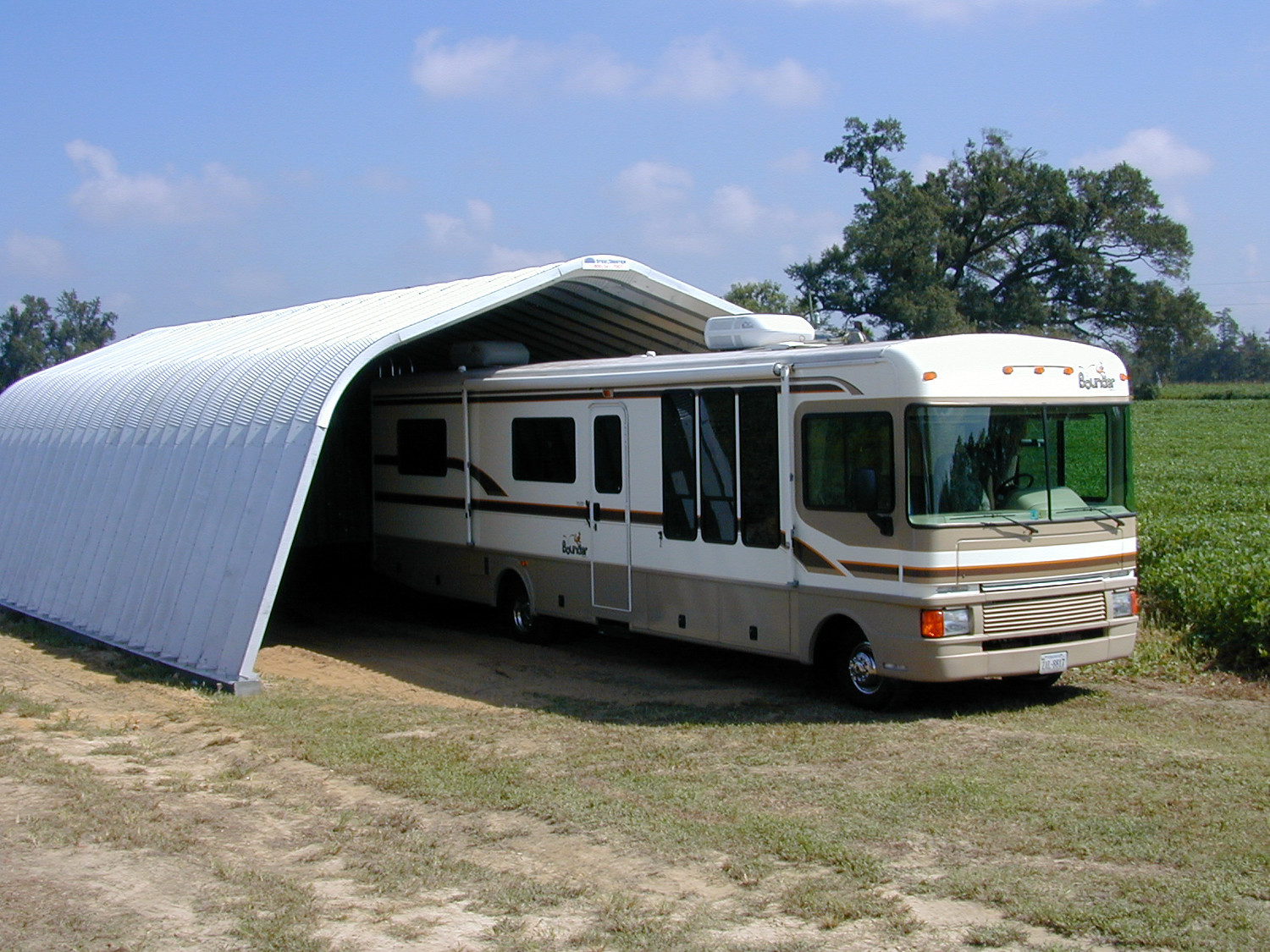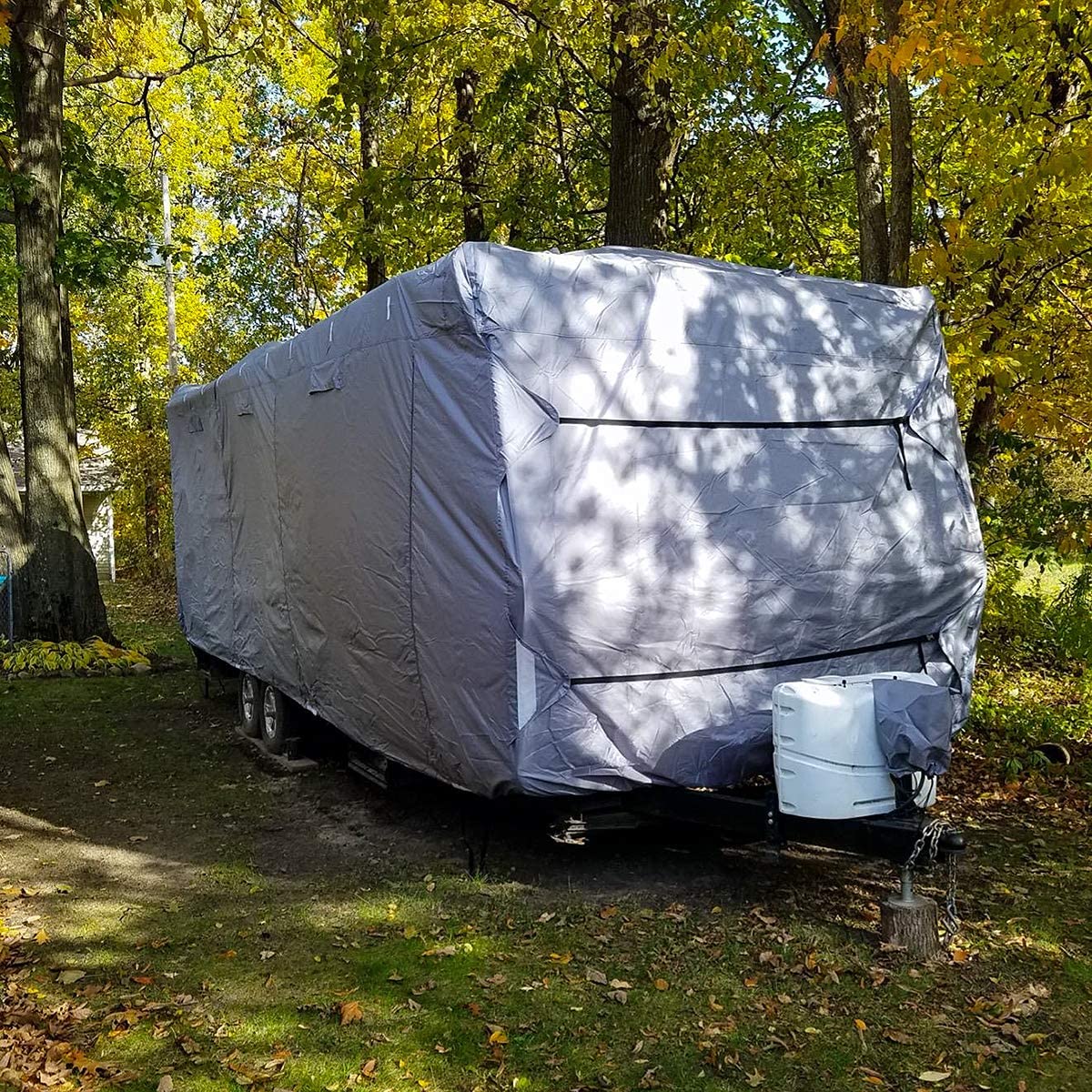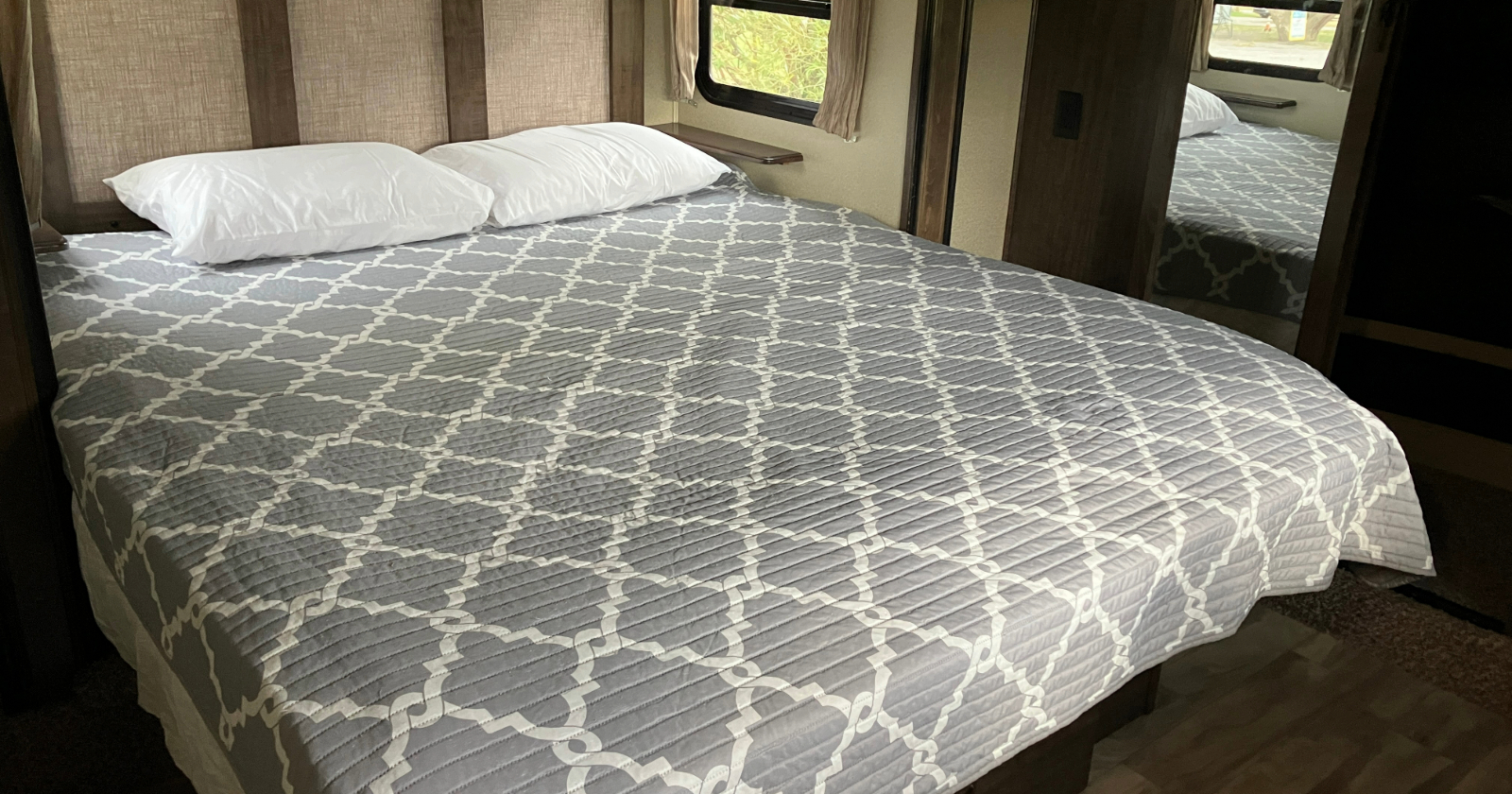Keeping your RV stored properly is important whether it is just going to be for the next few weeks (or months) during the COVID-19 lockdown or for the entire off-season. Not only will it keep your RV in good condition but it will keep your investment from losing value when it is not in use.
RV owners have two main choices when it comes to storage protection: RV covers and RV metal carports/storage buildings; the latter of the two being a much better choice if you can afford it.
Both options have pros and cons, and frankly, either one is better than leaving your expensive RV parked outside unprotected for extended periods of time. However, before you decide which one to use, these are some of the things that you will want to consider.

RV carports and garages
If your budget allows, a metal RV carport or fully sheltered building/RV garage is the best way to go. They provide much better protection from the elements such as rain, wind, hail, snow, and the sun. In addition, they make it a lot easier to access your RV while it is stored, rather than having to pull off the whole cover (which can be even more inconvenient if you have a big Class A motorhome).
Metal carports can run anywhere from $800 to thousands of dollars. This price will increase with the more features you want such as windows and power outlets (which is essential to keeping your RV batteries charged).
Carports and garages also run higher when they have a larger square footage, depending on how big your RV is and how much extra space you want to store things like your tow vehicle, portable waste tank, etc. RV garages may also require you to get a building permit (depending on your area), which will be an additional cost and require extra paperwork.
Pros:
- Weatherproof – Better protection from the elements
- Accessing the RV while in storage is easy
- Garages can also have power outlets to keep your batteries charged and power things in the RV. No need for an extension cord!
- Provides extra storage space for other RV accessories
Cons:
- More expensive (though it will add value to your RV in the long run)
- Takes up a lot of space on your property, and may even require a building permit
RV covers
While they will not protect your RV as well, RV covers made of a good, durable material are still a viable option for those who want something more affordable. Most RV covers will protect the exterior of your RV from UV damage as well as things like bird droppings and bugs. On the other hand, they do not protect your RV nearly as well as a carport in bad weather; RV covers will not hold up in a hail storm (or even strong winds, if the material is cheap).

Putting the cover on your RV, and taking it off, can also present a challenge. They can be heavy and bulky, particularly if you have a 40-foot motorhome you need to cover, and can take more than one person to set up or take down. This also makes it more difficult to access the RV while it sits in storage.
Quality RV covers like this one from Amazon are typically made with breathable air vents to keep moisture from getting trapped underneath. However, keep in mind that a regular blue tarp should never be used on RVs as they cannot breathe properly and it will allow moisture to build up and cause mold and mildew.
Pros:
- More affordable than metal carports and garages
- Readily available online for all different sizes of RVs
- No need for assembly
- Protects from basic elements like UV damage
Cons:
- Not waterproof or weatherproof
- Will not last nearly as long as a carport or garage
- Some covers have been known to scratch paint from wind rustling the cover
- Can be difficult to set up and remove



